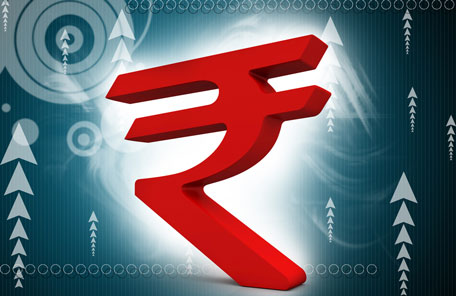 Jeddah, May 30: The Indian rupee dropped to its lowest level in 10 months and one Saudi riyal was fetching almost Rs. 15 yesterday. "My remittance fetches more rupees now." This is how the average Indian expatriate is reacting to the situation.
Jeddah, May 30: The Indian rupee dropped to its lowest level in 10 months and one Saudi riyal was fetching almost Rs. 15 yesterday. "My remittance fetches more rupees now." This is how the average Indian expatriate is reacting to the situation.
However, some Indian expatriates felt the falling trend of the rupee will have an adverse impact on their national economy in the long term.
"Yes, in the short term we are gaining here because our Saudi riyals are fetching more Indian rupees. No doubt about it, but it will have a very negative impact on the Indian economy. So in the long term we'll suffer there in India," A. Kadir Khan, who is living in the Kingdom for over 20 years, said.
The partially convertible rupee closed at 56.17/18 per dollar compared to 55.9550/9650 on Tuesday. The unit fell to as much as 56.37, its lowest since July 25, 2012.
"This has come in as good news to me because I have been wanting to remit a substantial amount to India," said Zabihuddin Akhtar, an accountant. "This will fetch me a good rate."
Akhtar knows full well that a depressed rupee is not good for the Indian economy. "But I am thinking of what is beneficial to me at this moment," he said. "At a time when our salaries have remained stagnant, such fluctuations are like artificial bonuses for us non-resident Indians."
John Sfakianakis, chief investment strategist at Masic in Saudi Arabia, said the dollar has entered bullish territory and from here on it will appreciate against most currencies.
"For Saudis and expatriates it translates into more purchasing power abroad or when they remit and hopefully cheaper imports or at least not a spike in imported goods over a period of time. This should also be reflected in the rest of the GCC as the dollar forms the bulk of cross border transactions," he said.
Jarmo T. Kotilaine, a regional analyst, told Arab News: "The global economy still faces numerous risks and currency dynamics can be subject to significant short-term influences. Even though many emerging Asian currencies are likely to continue to appreciate over the coming years, this trend may be contained or even reversed by current positive momentum of the dollar."
However, he said the greenback is benefiting from growing signs of what looks like a fairly sustainable — albeit perhaps not very impressive — recovery. This is fueling speculation of exit strategies from the current quantitative easing strategies of the Fed. Even if any actual change will likely prove extremely gradual, this prospect is likely to continue to influence expectations in a way that is favorable to the dollar. By contrast, for instance, India has been loosening its monetary policy and is yet to regain its previous growth momentum.
Recent years have shown that exchange rate fluctuations can have a significant impact on remittances, most notable in terms of their timing.
"With time, the continued appreciation of Asian currencies will likely begin to put pressure on expatriate salary expectations by potentially reducing the number of people willing to come and work in the Gulf. Higher living costs in the Gulf will have the same effect. This should over time reduce the gap between expatriate and local salary expectations in a way that should favor more local employment," Kotilaine added.
He said a degree of volatility between the riyal and many Asian currencies is the result of exchange rate policies based on a free or managed float in many Asian economies. "People with an element of discretion in terms of the timing of remittances tend to increase them when the Asian currencies depreciate as this increases the purchasing power of the transfers in their home countries. Under the opposite scenario, there is a greater likelihood of retaining funds longer in the Gulf in the expectation of a more favorable rate in the future."
The rupee has so far in 2013 failed to benefit much from the nearly $ 20 billion worth of inflows into equities and debt, according to Reuters.
The index of the dollar against six major currencies was down 0.6 percent when the rupee closed.
In the offshore non-deliverable forward PNDF, the one-month contract was at 56.53 while the three-month was at 57.11.
In the currency futures market INRFUTURES, the most-traded near-month dollar/rupee contracts on the National Stock Exchange, the MCX-SX and the United Stock Exchange all closed at around 56.47 with a total traded volume of $ 5.50 billion, Reuters reported.






Comments
Add new comment